Birkat Haderekh – Blessing for the Road
for Bb Clarinet, Violin, Violoncello, and Piano
-
Ships in 1 to 2 weeks
Details
Description
SKU: PR.114417160
For Bb Clarinet, Violin, Violoncello, and Piano. Composed by Shulamit Ran. Sws. Contemporary. Set of Score and Parts. With Standard notation. Composed 2014. 16+4+4+4 pages. Duration 6 minutes. Theodore Presser Company #114-41716. Published by Theodore Presser Company (PR.114417160).ISBN 9781491111468. UPC: 680160626885. 9x12 inches.
Shulamit Ran’s delicately tinted chamber work Birkat Haderekh...glowed with a sense of gentle but firm supplication, its title rendered from the Hebrew as “Blessing for the Road.” -- Jeremy Eichler, The Boston Globe. ...Birkat Haderekh...is a wandering meditation on melody written for the Quartet for the End of Time ensemble: clarinet, violin, cello, piano. Cast in a single movement less than 10 minutes long, the work develops and deepens ideas introduced in a wistful opening clarinet line. Mostly introspective and direct in its appeal... -- Brian Schuth, The Boston Musical Intelligencer.
Program NotesBIRKAT HADEREK (Hebrew for “Blessing for the Road”) begins its journey as aspacious, gently inflected solo clarinet melody, slowly unfolding as it gathers the other members of this clarinet quartet around itself, carving out a distinctive musical “space.”Looking at this work in its totality, the opening phrase is, at some level, emblematic of the entire piece, as this single-movement composition of approximately 8 minutes can be heard as one extended, gradually evolving melody. At around the midpoint of the piece, though, where the clarinet assumes the solo line again, this melody takes something of a turn. With just a small melodic twist, the music takes on an imploring quality, almost in the spirit of an invocation, gradually increasing in urgency, thus becoming a form of prayer — its potential perhaps hinted at, but not necessarily self-evident, in the opening statement.In my own mind while composing the piece, and no longer just thinking in the strictly musical terms of the formation and development of sound shaped in time, the piece became, for all of its modest proportions, a parable of one of life’s journeys. I found myself thinking of the array of conflicting emotions associated with preparing for a voyage, destination uncertain, of someone precious. Anticipation, anxiousness, longing, hope — all mingled together. Perhaps it is a mother praying for her child’s well-being; a small, private ritual that cuts across time and place, speaking to our common humanity.—Shulamit Ran.
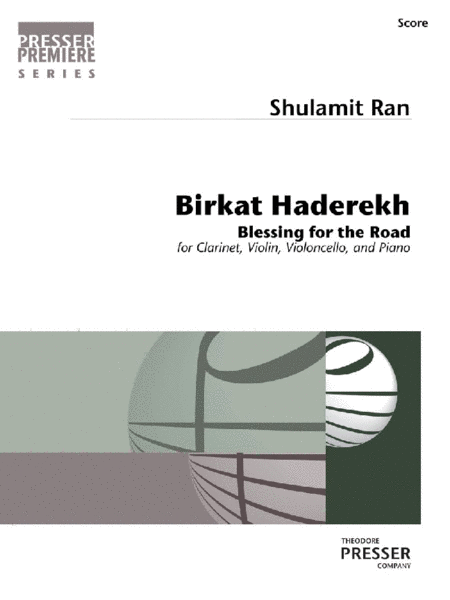
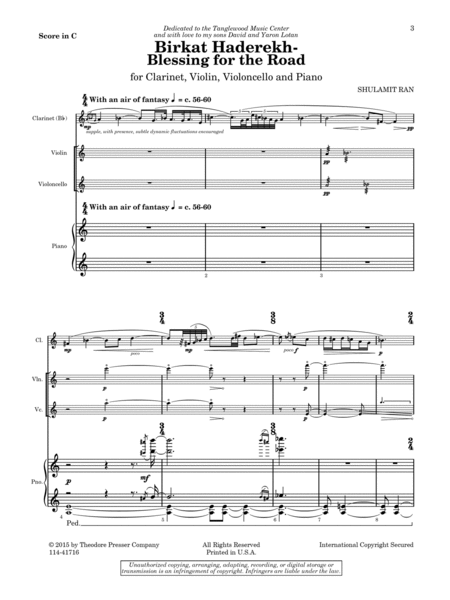
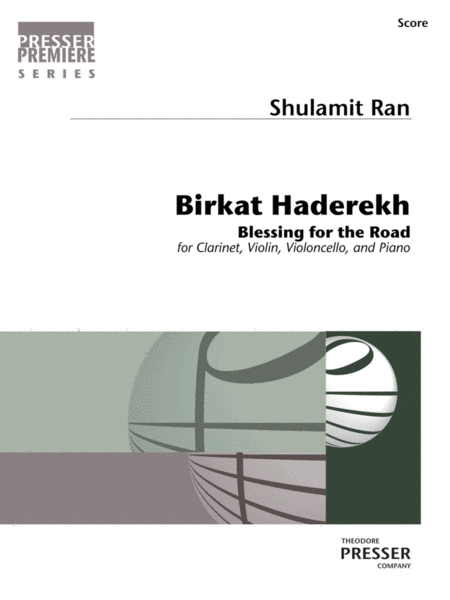
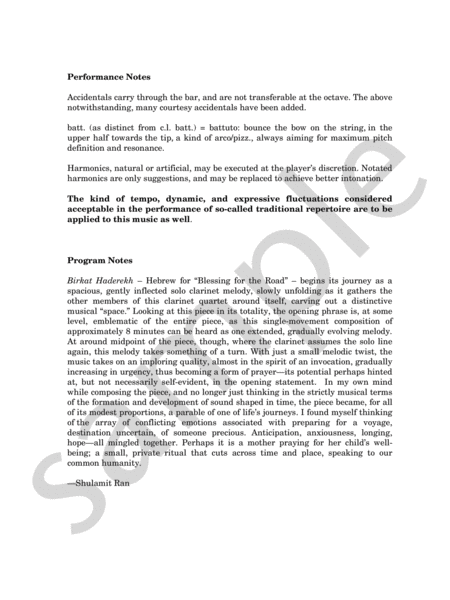
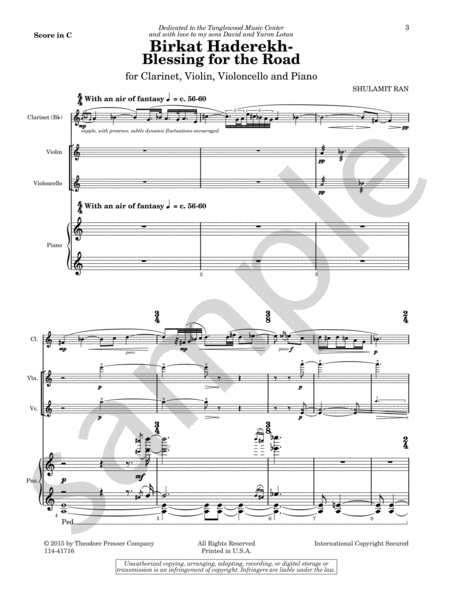
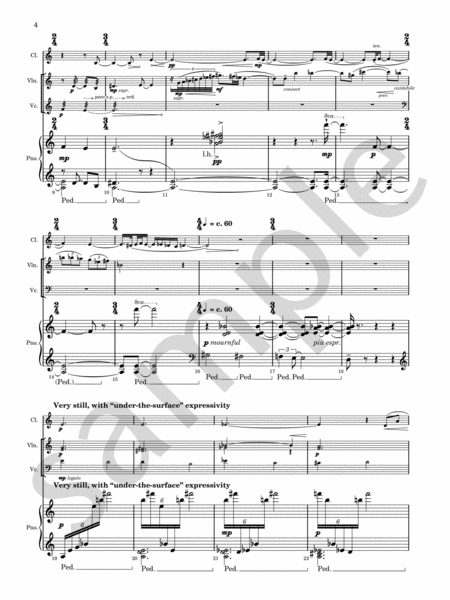
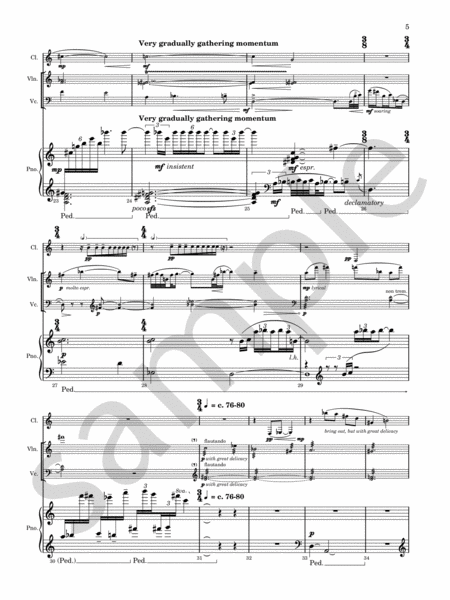
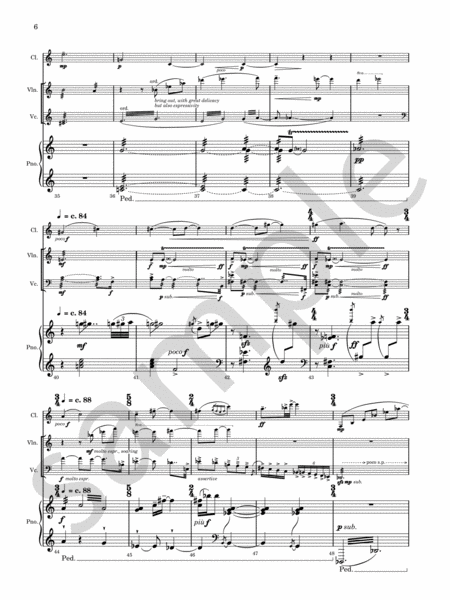
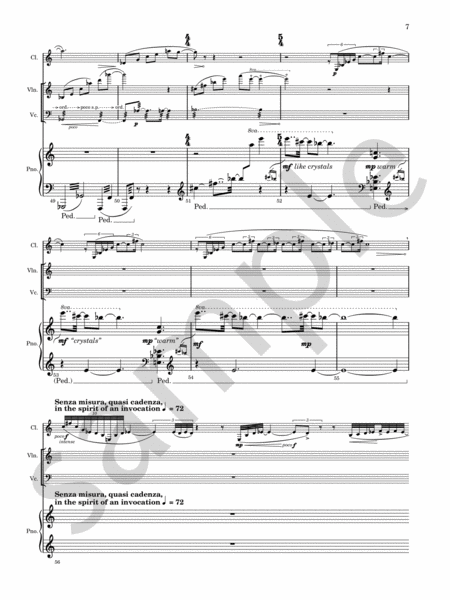
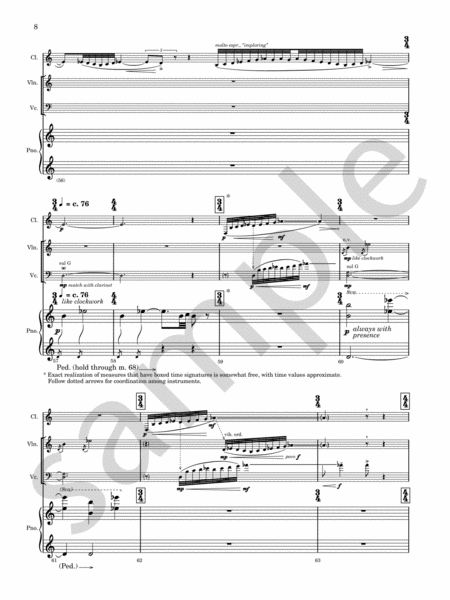
 Share
Share